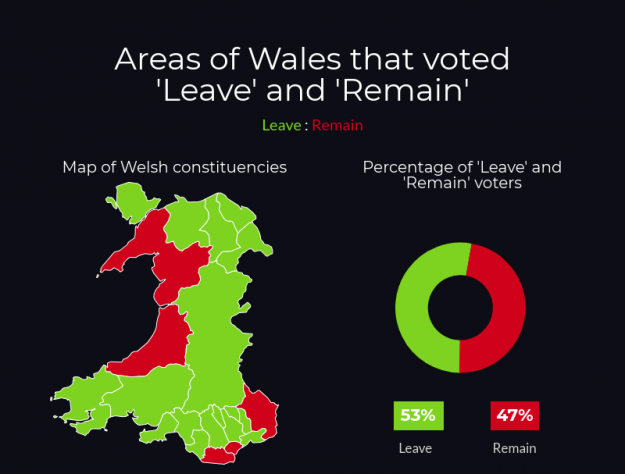As the UK’s departure from the EU quickly approaches, what are the possible challenges that face the UK and Wales?

The UK is nearing its departure from the EU, even though there have been tremendous attempts to stop it. ‘Wales in a Post-Brexit World’ was an event in the Temple of Peace in which a panel of academics in various fields gave their views on the challenges the UK and Wales will face outside the EU. The Minister for International Relations and the Welsh Language Eluned Morgan also gave her view on the current situation alongside Sir Emyr Jones-Parry, the former UK Permanent Representative to the United Nations.
Susie Ventris-Field, Chief Executive of the Welsh Centre for International Affairs, argued that Wales must remain optimistic and work to ensure the best outcome. She said, “Whatever happens next, Brexit is going to form a crucial part of what we do moving forward. One of the reasons we are talking about Wales’ role in the world is because of Brexit, as it will change our relationship with Europe and the rest of the world. It’s going to be more vital than ever for trade, investment tourism and ultimately jobs.”
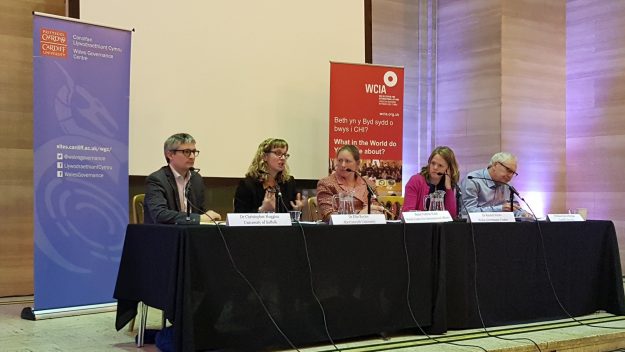
“But it’s not just the economy that’s important, we need to answer the young people of Wales and their demands for climate action and we need to recognise and respect the position of Wales and its long history of international solidarity and relations and reflect that moving forward. We also need to respect and promote our commitment to human rights.”
What, then, is the likely position Wales and the UK will find itself in post-Brexit? What challenges are there?
Professor Kevin Morgan, a Professor of Governance and Development at Cardiff University, pointed out that although the UK will continue to interact with the EU on various schemes, Wales will be affected by the departure due to the countries reliance on ‘structural funds’ provided by the EU.
“One of the biggest challenges is Wales has been using European regional policy funds like structural funds. Structural funds are allocated on the basis of need, need is a key bargaining criterion for structural funds” said Professor Morgan. “Horizon Europe doesn’t get distributed based on need, it is distributed on the basis of excellence. You can’t turn up to the Union and say we are not getting our fair share of the Horizon 2020 money.”
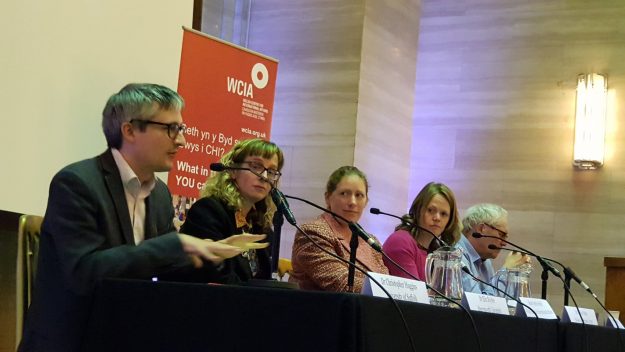
“The question is: will it be bad or really bad?” said Professor Morgan. “Given what’s happened in British politics over the last two years it is somewhat rash to make a prediction whatsoever.”
The outlook for Wales, and the UK as a whole, is not completely negative according to Professor Morgan. He believes that just because the UK is leaving the EU, does not mean that it will not continue to interact with European countries on very important programs. He said “I think the UK will pay to play in some of the European Union programmes whether we come out or not,” said Professor Morgan. One of these being “a program called ‘Horizon Europe’, which is the future of research and innovation funding post-2020. That’s a 100 billion-pound European program for the future of research and innovation projects in which the UK has been one of the leaders.”
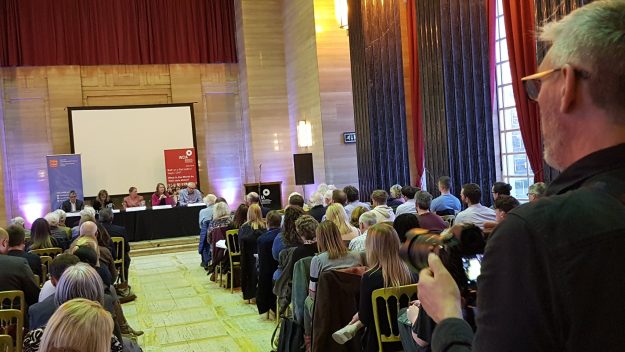
According to Eluned Morgan, the Minister for International Relations and the Welsh Language, Wales has suffered considerable damage to its reputation. She said, “I think that we have to understand that the Brexit debacle has done untold damage to our reputation in the United Kingdom and around the world. It’s no exaggeration to say that we stand on the edge of a new world and that Wales will have to work harder than ever to rise above the increasing global competition to promote ourselves on that broad stage.”
Professor Morgan believes Wales needs to reform the way in which it presents itself and operate internationally. He said “we need to think about what are we selling to the world that will make them want to form an alliance with us in terms of our economic interests, our cultural values, our commitment to sustainability, the fact that we aspire to be a fair nation. These are intrinsic significant values that would should cherish,” said Professor Morgan.
“Therefore, Wales needs to build stronger, sleeker and better networks throughout Europe regardless of what happens with Brexit,” he said.
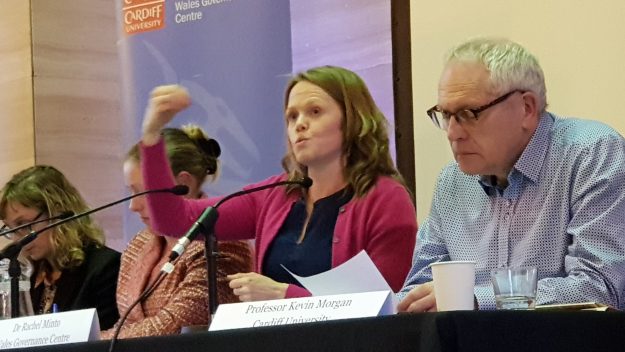
“The biggest challenge looking ahead is we simply don’t have the institutional capacity to form a synergy between our external aspiration and our internal capacity. We simply don’t have the knowledge of partners, of markets, of technologies to strike up these alliances.”
Eluned Morgan pointed to the work Wales is already doing to prove it is ready to be an international player in a post-Brexit world.
“What’s clear to me is that for a small country, Wales punches above its weight. We do have record levels of employment and at the moment we have growing exports, we have world class universities and we have huge national assets as we conduct world leading research and we are pioneering globally unique legislation like the wellbeing of future generations,” she said. “EU citizens need to feel that they are very much welcome here in Wales, we are a nation of sanctuary.”
There are no definite answers for what position Wales will find itself in post-Brexit. What is certain, however, is that the country will face many challenges in many different sectors. According to the speakers at this event, Wales will need to work harder than ever to promote itself on the international stage and remain internationally connected.
